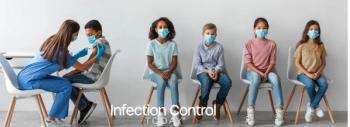
Study Disputes Effectiveness of COVID-19 Test Touted by President Trump
The US Food and Drug Administration (FDA) granted emergency use authorization (EUA) to the Abbott ID Now test on March 27.
The Abbott ID NOW test for COVID-19 is supposed to work in 5 to 15 minutes and has been touted by President Trump on several occasions, with the president saying Monday that “these tests are highly sophisticated-very quick, very good.” Adding that the 13-minute test “didn’t even exist a short while ago.” In fact, President Trump is such a believer that the test is being used on White House officials.
But investigators at NYU Langone Health in New York say in a
Investigators concluded that “our study revealed low sensitivity with high false negative results by Abbott ID NOW platform irrespective of use of viral transport media, which raises concern regarding the performance of the assay and its suitability as a diagnostic tool for symptomatic patients.”
Abbott wasted no time disputing the study’s findings in a
The US Food and Drug Administration (FDA) granted emergency use authorization (EUA) to the Abbott ID Now test on March 27. The company as of mid-April has shipped about 600,000 of the tests, and they are being used at CVS and Walgreens. They’re also being used in urgent care centers and hospitals.
The NYU investigators gathered data from nasal swabs taken from 101 patients tested for COVID-19. They compared the Abbott test results with the results of a test manufactured by a company called Cepheid. For the Cepheid test, 31 of the 101 patients tested positive. They then took those 31 swabs that had tested positive and used the Abbott test on them, finding that 48% of them came back negative.
“Based on our findings we could argue that the Abbott ID NOW detects samples with high viral load or possibly viable virus that could be of importance for transmission,” the study states. “But, the fact that it misses positive samples on patients being admitted to the hospital with clinical picture of COVID-19 makes this technology unacceptable in our clinical setting.”
Newsletter
Stay prepared and protected with Infection Control Today's newsletter, delivering essential updates, best practices, and expert insights for infection preventionists.




